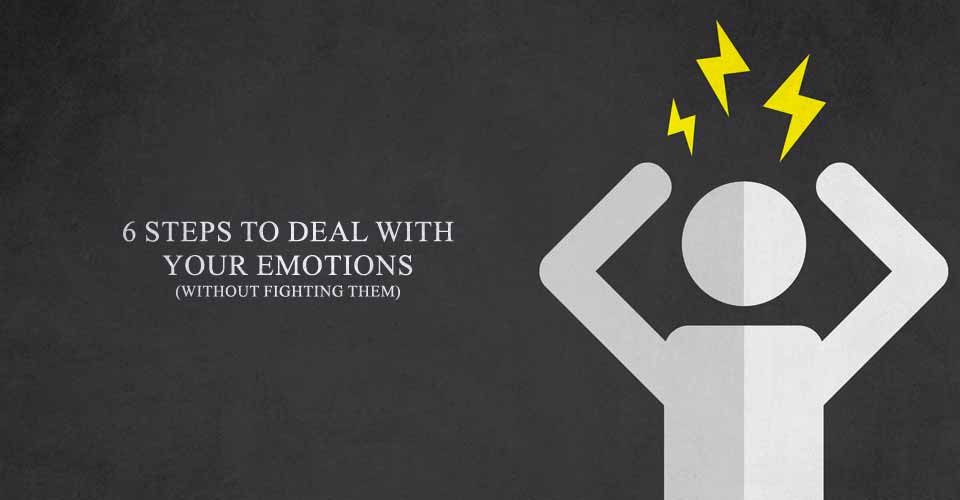I am not a person who takes naturally to dealing with emotions.
This may surprise people who have not known me for my entire life. Currently, I handle my emotions well. I am able to remain calm, while still feeling my feelings and reacting appropriately. However, this was not always the case.
Over the course of several years, I have had to teach myself how to recognize and handle emotions.
Doing so is surprisingly hard. However, with practice, it can become second nature. Of all the skills I have developed in my life, I would say the capacity to deal with emotions is the most valuable. That’s why I’m so happy to be able to share it with you.
Here are six steps to working through a difficult emotion:
1. Accept that you are having a feeling.
Don’t try to push it down where you can’t see it. Don’t try to tell yourself that it isn’t important, or that it doesn’t exist. Bring your emotion out into the light of day. Examine it. Watch it evolve in your mind, and uncover the multiple layers behind it. Let your emotion develop without judging it. Be receptive to what it tells you.
2. Listen to your emotions.
Many people consider this step to be fluffy, but it is actually very much rooted in logic. In the context of your brain and body, your feelings function as data. Your emotions are telling you something. What do your instincts say about this situation? What past events come to mind? How are they relevant? Mine your emotions for as much data as possible. Harness them to help you make wise decisions.
3. Seek perspective.
Consider you are fighting with a loved one. Take an honest look at the situation from their point of view. Do they have all the information they need to understand you? Do you understand them as well as you need to? Consider your emotions in the context of your day, your year, and your entire life. How is what you’re feeling now connected to your upbringing? How will your reaction reverberate through your future?
4. Formulate a game plan.
What does this situation call for? Do you need to apologize? Do you need to share your feelings with a loved one to prevent your resentment from ruining your relationship? Do you need to work through this issue on your own? Put together a game plan that will help you to work through your feelings. It may involve journaling, going for a long run, having a difficult conversation, or even speaking with a therapist. Your game plan should help you to engage with your emotions and eventually to move past them. It should also preserve any valuable relationships that may be at stake.
5. Reflect on your reaction.
Is your response truly aligned with your values? Are you doing the right thing? Are you taking the easy way out at the expense of honesty or authenticity? Are you allowing yourself to be vulnerable? Are you being fair to everyone involved? Is your reaction being driven by courage and hope, or by fear? Be honest with yourself. If you react in a way that is not true to your identity, you will only feel worse later on.
6. Revise and respond.
Based on step five, you will likely need to adjust your game plan to align with your values. Do so, and then put it into practice. It may go well. It may go poorly. As long as you have acted with integrity, you have done your part. If you still don’t feel right about things, you can go back to the drawing board and start again. There is no limit to the number of cycles you can take through these steps.
“When you react, you let other control you. When you respond, you are in control,” wrote Bohdi Sanders.
Don’t push your emotions down, and don’t let them run your life with wild abandon.
Engage with them thoughtfully. Treat your feelings with the respect that they deserve.



